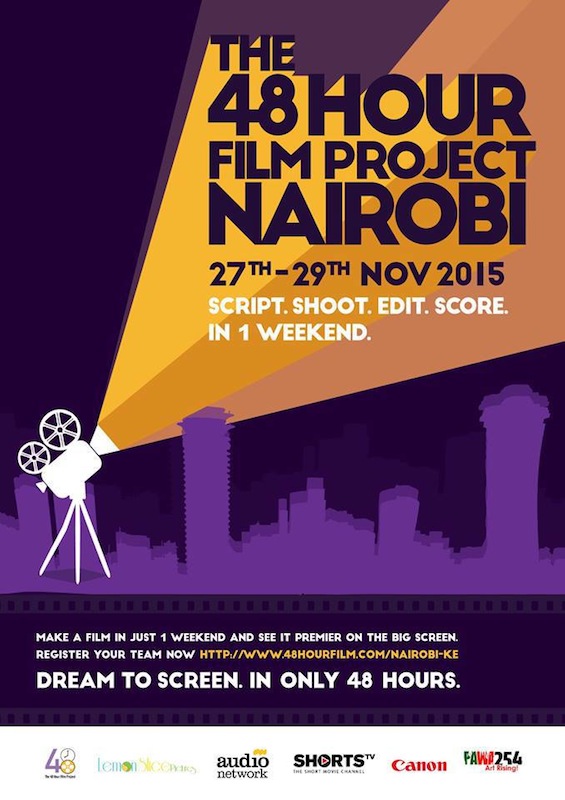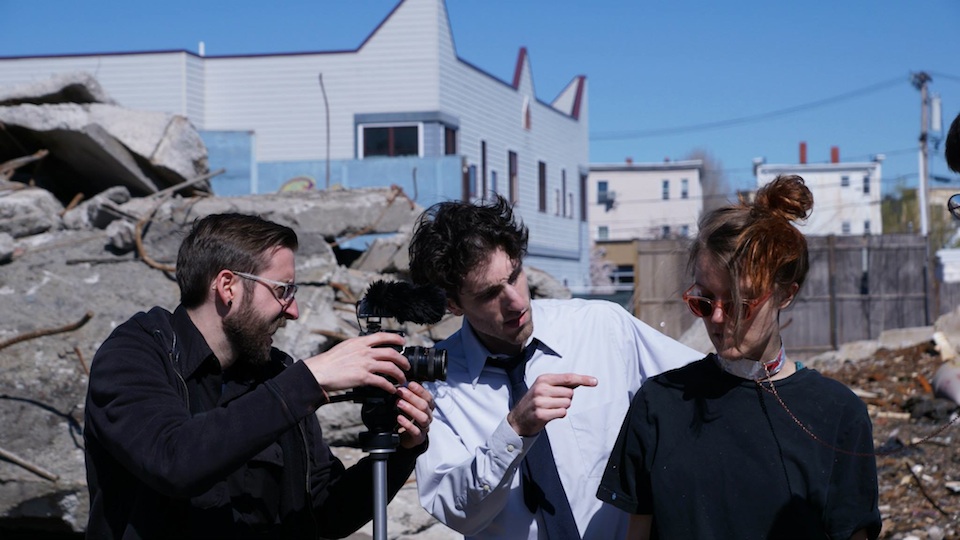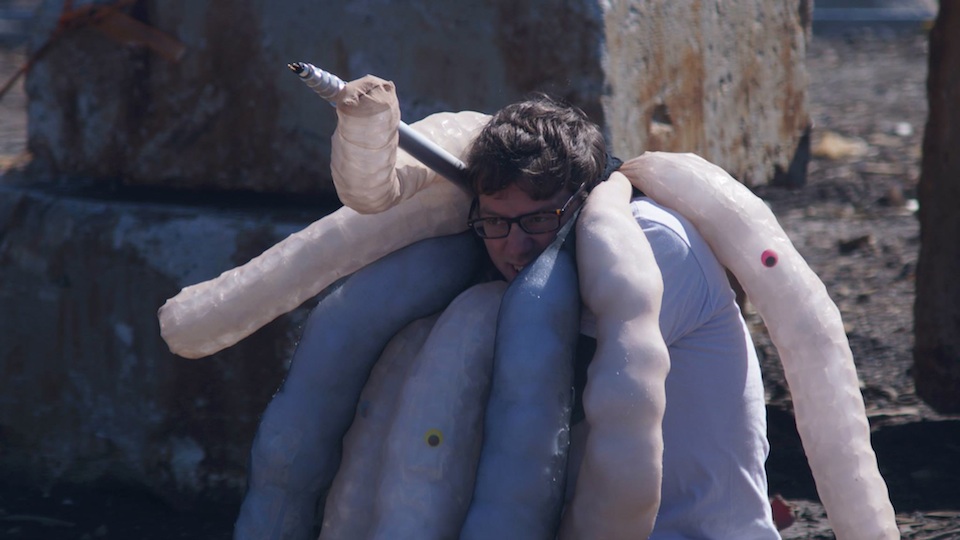callan \ blog
| lessons from the 48 hour film project
may 15, 2016
For the past three years, I've participated in Boston's node of the 48 Hour Film Project (48HFP) with the same core group of friends. We shot our submission for 2016 yesterday. It's more or less exactly what it sounds like: a challenge to make a 4-7 minute film in the course of one weekend.
If you're unfamiliar, here's how it works: Each year on Friday night, the participating teams are assigned a genre, a character name, a prop, and a line of dialog that must be used at some point in the script. They have until late evening on Sunday to drop off the final product - written, shot, and edited to whatever degree possible - at a predetermined location. A week or so later, films are screened at a local independent cinema and reviewed by panel of judges who give out awards and prizes for a handful of standard categories (best acting, best writing, and so on). The results range from polished pieces made by area professionals to rough-hewn montages of bored people testing the limits of the latest phones and fablets.

Dozens of cities all over the globe participate in the 48HFP.
Regardless of quality, making these things is a total joy. It's a perfect example of how racing against the clock, plus a mix of open-mindedness and willingness to follow certain preset parameters, can lead to amazing collaborative results.
Between the crazy deadline and the amount of different tasks that go into creating even just five-minutes-or-thereabouts of film, there's not much of an opportunity for anybody involved to bicker, to shirk responsibility, or grow attached to any one idea. Instead, the combined limitation of time, supplies, and human endurance leaves teams with little choice but to constantly revise, edit, reduce, and reframe. It's not easy to assemble professional-grade props or learn lines when you've got a matter of hours to shoot. The script is going to change all weekend long; it stays in a liminal, inconclusive state until everything's wrapped. Whole scenes and plot points may need to be cut if there's no way to secure a certain prop or costume or location.
I'm lucky to be part of a team that at its core consists of close friends who've known each other for a decade plus and are no strangers to competing in the 48HFP. Many of them work in film or similar types of creative production. I can't say how other teams' experiences compare, but with ours I've never seen things devolve into prolonged arguments or stasis or inflexibility. We all contribute so many ideas so quickly that when one gets ignored, reworked, or supplanted, there's no preciousness or unnecessary attachment for anybody. We also don't flinch when we're asked to do something more or something unrelated to the role we might have originally signed up for, whether that's in front of the camera or offscreen.

As seen here, where I rock it as a bedraggled member of an alien chain gang for last year's "Human Family Unit." We burned through an hour shooting what amounts of about 0.01% of the film, but we got to wisecrack and play with pantyhose tentacles (see below) on the site of the future (?) Green Line Extension, so I'd say it was time well spent.

One of my crowning achievements as prop constructor - tentacles comprised of pantyhose, cotton batting (a.k.a., stuffed animal innards), and googley eyes.
Did I come into my first year as costume and prop lady thinking I had any clue how to handle what would be expected of me on the set of a buddy cop film? Hell no. But I still spirit-gummed the crap out of mustaches, made belts and badges, kept bad guys looking menacing and disheveled, and made repeated runs to the corner store as needed. I carried my weight (and bags of equipment and props) and did my damnedest to help keep the camera rolling.
All this is to say, there's something here to be learned and applied to daily life. The amount of in-jokey camaraderie, fast friendships, and pride you get at the end of these marathon shoots is almost euphoric, and there must be a way to tap into that at the workplace. I think embracing flexibility, openness to in-the-moment assessment, and self-aware evaluation could be at the heart of it. Bolster it with an awareness that team projects are bogged down by ego and naysaying, and propped up by rapid idea generating and the ability to build off each others' thoughts. With creative and time constraints, people can often be at their most innovative and focused - constructive criticism becomes a must, rather than a persistent item on the organizational wish list.
Whatever the secret recipe may be, this year's concoction of basement genies, soda overconsumption, pharmaceutical ads, and crotch shots was ridiculously fun to pull together in two days. Chances to do something so wholly outside the scope of my job are few and far between these days, but deviations like the 48HFP are key to my sanity. They feed my optimism that shelving resentment, partnering up, and sharing credit can help humans work together on all sorts of complex problems.
Seriously, y'all. As long as we keep trying to tear down the walls of "no" and stopping ourselves every time we almost say "but that's how we have it in the script" (or maybe more accurately, the variant "but that's how I've/we've always done it"), I swear we're gonna be OK.
home | top
Hey Cal, why is there no comments section? Comments sections have a tendency to devolve into nasty little spaces, teeming with spam & ad hominem attacks. I also have a fondness for the 1.0 Web (props to Neocities, powerer of this site). If you'd like to share your thoughts, find me on Twitter or fire off an email. Thanks!